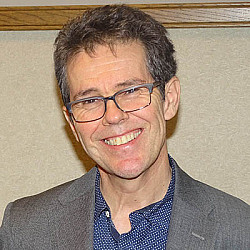Watch the Recorded Presentation
About the Lecture: Confronted by the Holocaust, we are torn between the idea that the perpetrators were monsters and the suspicion they were ordinary men. Tens of thousands committed individual acts of indescribable bestiality, while many more were knowingly involved in a continental-wide program of genocide Remarkably, most of these individuals were not psychotic; they were often family men and women who led unremarkable lives outside this period. So, how do we make sense of them? Was it about living under a totalitarian regime in the early 20th Century? Was German culture particularly violent? Or are they telling us something more general about populist, anti-democratic regimes, and their ability to mobilize society for hatred and violence?
About the Speaker: Mark Roseman is a Distinguished Professor in History, a Pat M Glazer Chair in Jewish Studies, and director of the Borns Jewish Studies Program at Indiana University. Born and educated in England, where he studied at the Universities of Cambridge and Warwick, he is the author or editor of eleven books on the Holocaust and modern European history, many of which have been translated into other languages. His books include ÜberLeben im Dritten Reich. Handlungsspielräume von Juden und ihren Helfern (2021); Lives Reclaimed. A Story of Rescue and Resistance in Nazi Germany (2019); Beyond the Racial State (with Devin Pendas and Richard Wetzell, 2017) Jewish Responses to Persecution, 1933-1946: Volume I, 1933-1938 (with Jürgen Matthäus, 2010); The Villa, the Lake, the Meeting. The Wannsee Conference and the ‘Final Solution’ (2002); and The Past in Hiding (2000). He is the general editor of the four-volume Cambridge History of the Holocaust which will come out in a few months. He is the winner of several literary prizes, including the Frankel Prize and the Geschwister Scholl Prize.

 The College of Arts
The College of Arts